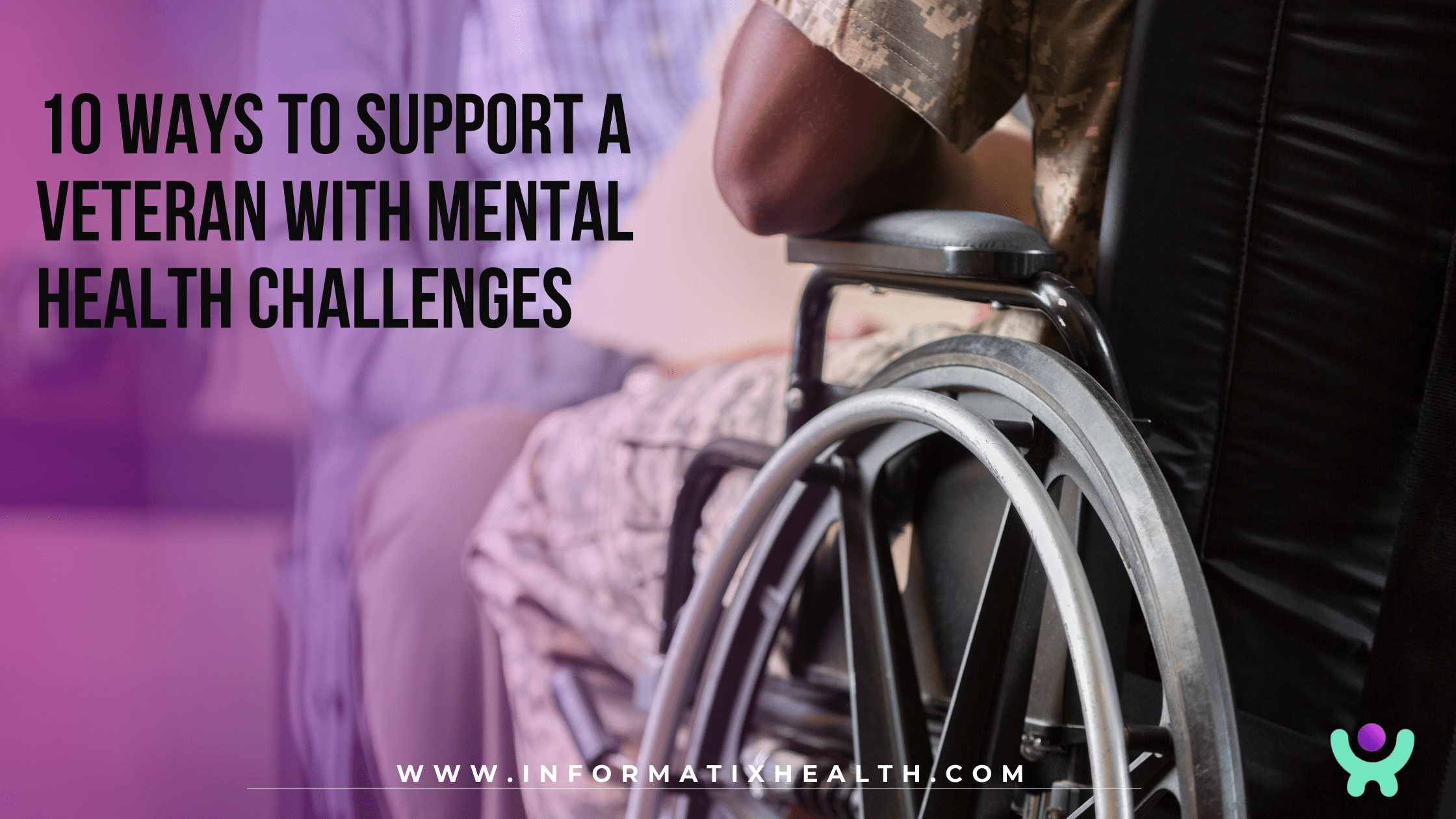Veterans have served our country with honor, but many return home with invisible wounds—mental health challenges that can make daily life difficult. Whether it’s PTSD, depression, anxiety, or adjustment disorders, our support can make a meaningful difference in their healing journey.
At Informatix Health, we believe in compassionate, personalized care—especially for those who’ve given so much. If you have a veteran in your life, here are 10 ways to offer support that truly helps.
1. Listen Without Judgment
Sometimes the most powerful thing you can do is simply listen. Give them space to share their thoughts and feelings without trying to fix or minimize their experience.
2. Respect Their Boundaries
Veterans may need time before they open up. Be patient. Respect their space and let them know you’re available when they’re ready to talk or connect.
3. Learn About Mental Health and PTSD
Educate yourself on what your loved one might be going through. Understanding conditions like PTSD or traumatic brain injury can help you respond with empathy rather than confusion or frustration.
4. Encourage Professional Help—Gently
Mental health treatment is essential, but it must be the veteran’s decision. Offer support and provide information about therapists, VA services, or home care options like those we provide at Informatix Health.
5. Promote Healthy Routines
Daily structure, regular sleep, physical activity, and balanced meals can have a profound effect on mental health. Invite them to join you in a walk or help plan meals for the week.
6. Be Mindful of Triggers
Loud noises, crowds, or even certain topics can be triggering. Ask what makes them feel safe or uncomfortable—and tailor your environment or behavior to help reduce stress.
7. Offer Practical Help
Mental health struggles often make it hard to manage everyday tasks. Helping with errands, setting reminders, or offering transportation to appointments can ease their burden.
8. Stay Connected
Isolation can worsen symptoms of depression and PTSD. Check in regularly through calls, texts, or visits—even a quick “thinking of you” message can brighten their day.
9. Support Group Participation
Encourage (but don’t pressure) involvement in veteran support groups or community activities. Peer connection can provide validation, camaraderie, and healing.
10. Take Care of Yourself Too
Supporting a veteran can be emotionally intense. Make sure you have your own support system and take time to recharge so you can continue showing up for them.
Compassionate Home Care for Veterans in Massachusetts
At Informatix Health, we’re proud to serve veterans in Quincy, Dorchester, Randolph, and across Massachusetts with home health services designed to promote dignity, independence, and mental wellness. Our caregivers are trained to offer respectful, reliable support in the comfort of home.
If you or a loved one is a veteran in need of care, reach out to us today. Let’s walk the path to healing—together.
Contact Informatix Health
📞 508-388-2020
🌐 www.informatixhealth.com
📍 Serving Quincy, Braintree, Dorchester, Hyde Park, Randolph, Weymouth, Framingham, Norwood, and surrounding areas.


